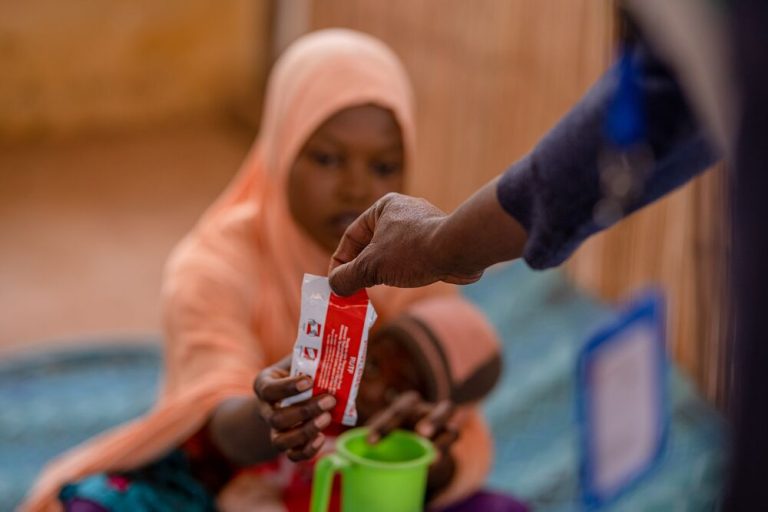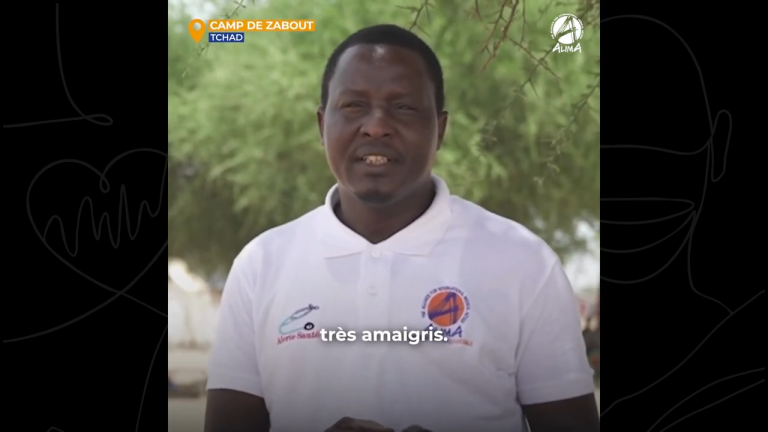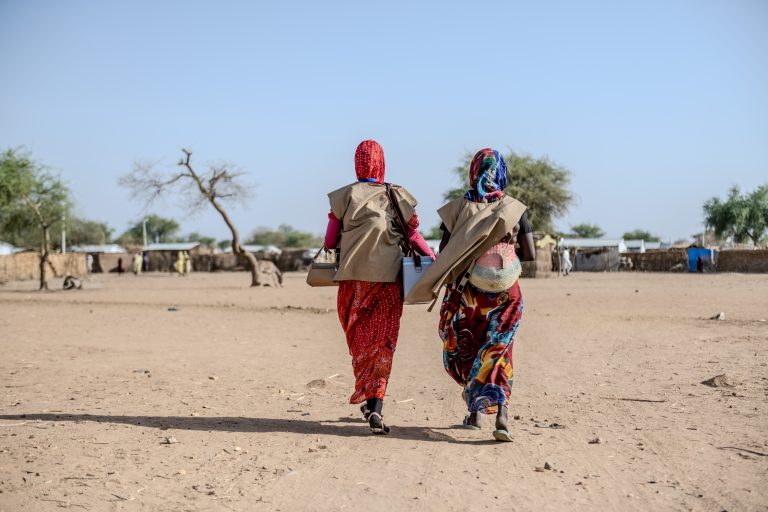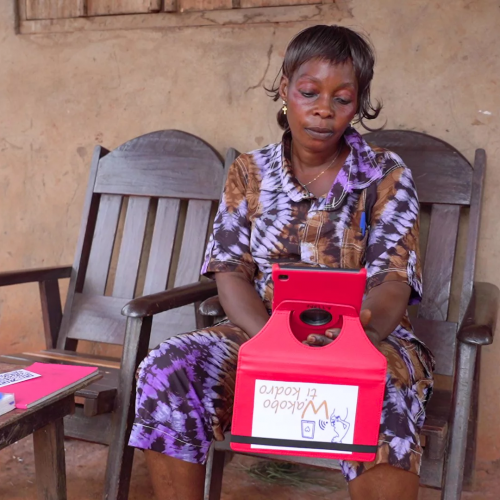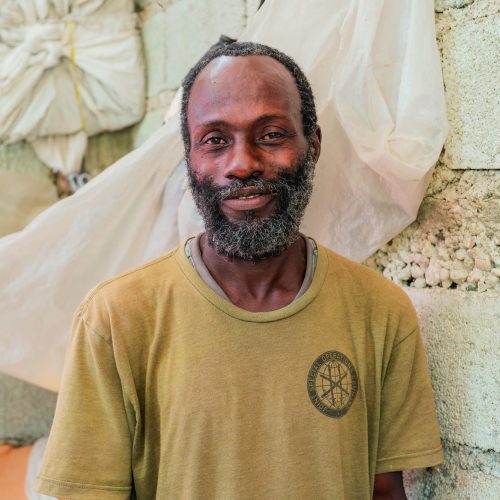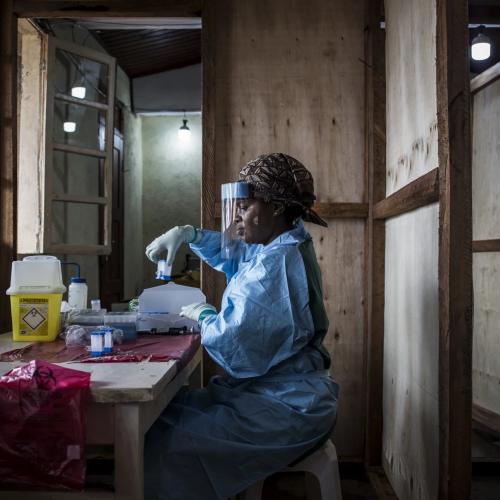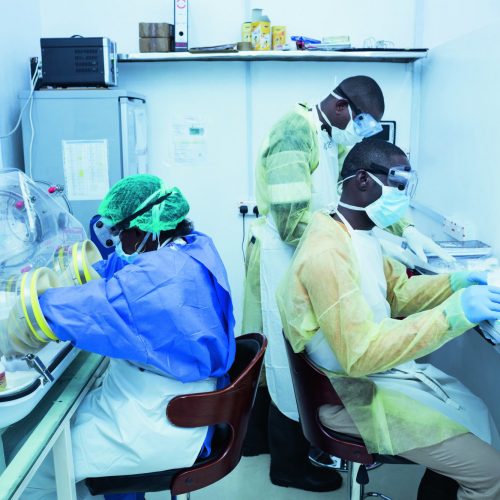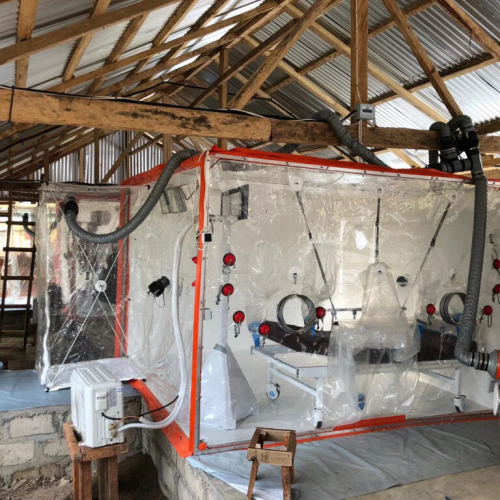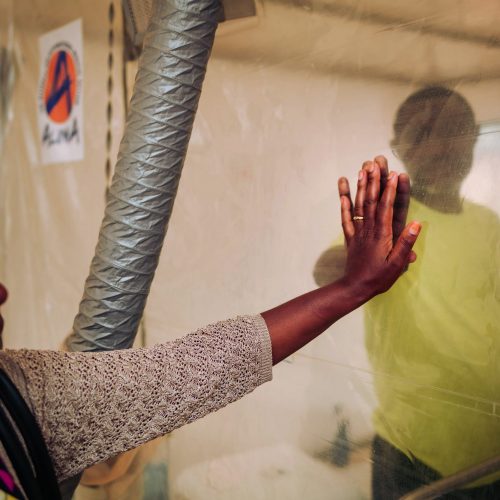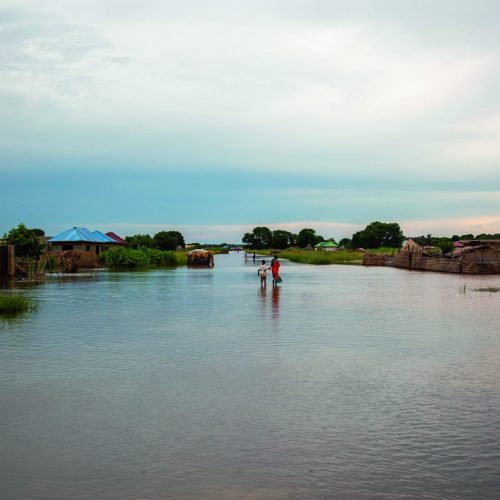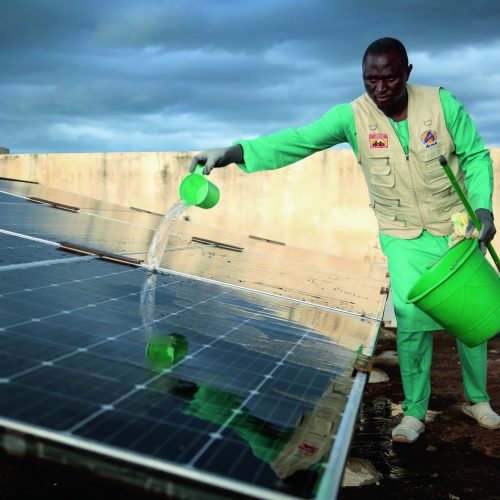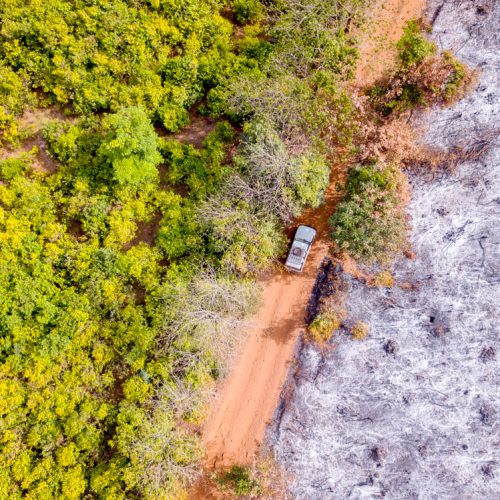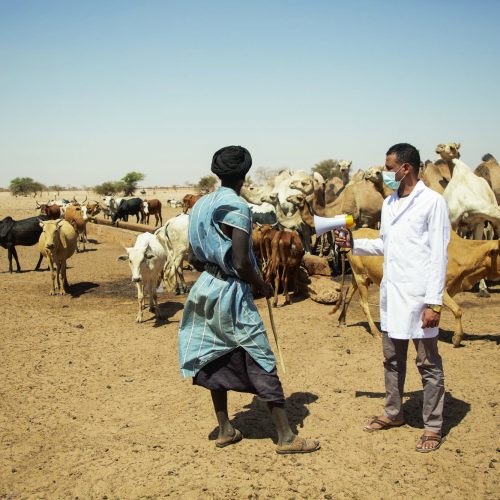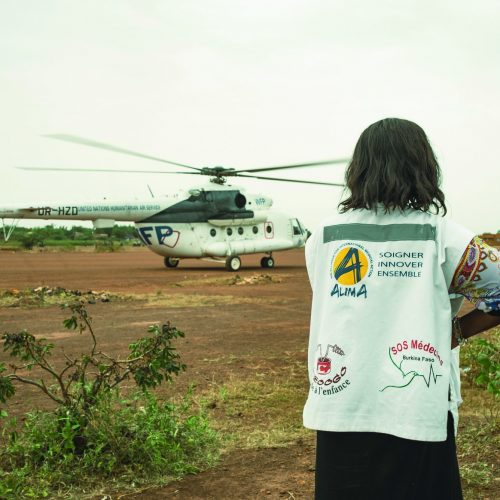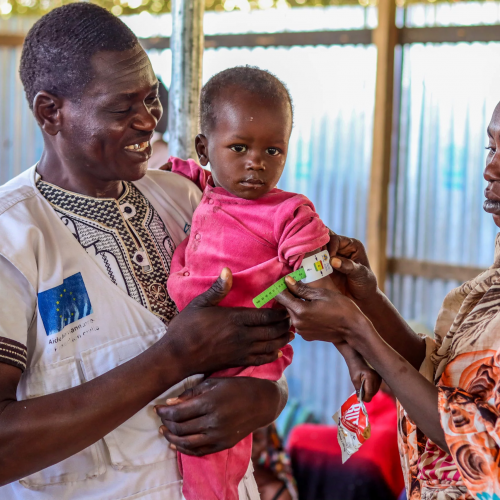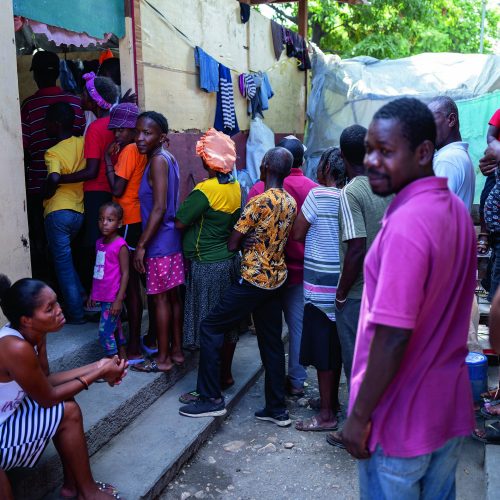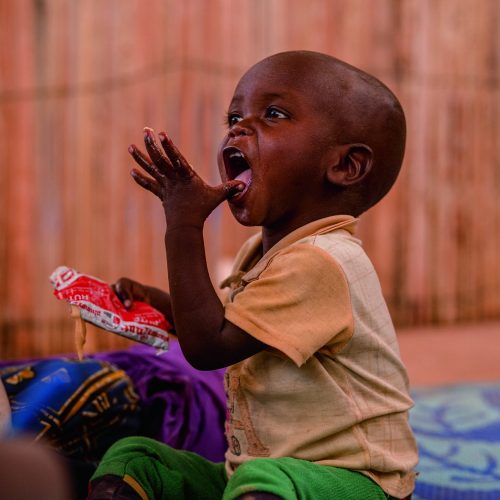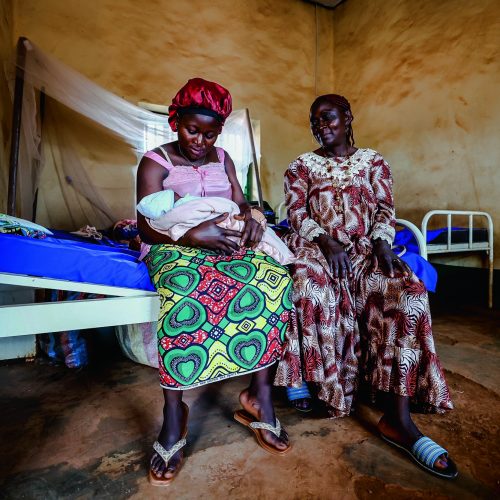Zadi is just one of more than 1,600 children that ALIMA (The Alliance for International Medical Action) and partners have enrolled in the malnutrition program since the clinic opened in August.
“We are seeing more than 30 new SAM [severe acute malnutrition] cases each week,” said Nicolas Mouly, ALIMA’s project coordinator in Muna. “There is no way to avoid malnutrition here. There is not enough food or water in Muna. The living conditions are poor and make people more susceptible to disease.”
Since the insurgency began in 2009, an estimated 2.6 million people, including 1 million children, have been displaced across the country. Thirty thousand have taken refuge in Muna.
Most arrive with little more than a small sack of personal items. Those that settle within host communities have little access to food, water or shelter. Local community members remain unable to farm or tend to their livestock due to the insecurity.
The needs are huge.
“We have nothing,” said 20-year-old Fatima Tolo, who arrived at the Muna Clinic in mid-December from Maiduguri, with her one-year-old daughter. “We are completely dependent on the inhabitants in the camp. My only concern is for food.”
At the Muna Clinic, 26 percent of kids who come to the clinic are found to have severe acute malnutrition (SAM) and the rate of global acute malnutrition (GAM) is 43 percent. Within the neighboring communities, a MUAC screening led by the Ministry of Health and UNICEF, in October during a polio vaccination campaign, found the rate of SAM to be around 6.2 percent.
But as more people need medical care, local health staff outside of Muna and Maiduguri have fled. Clinics have been abandoned. Most other humanitarian aid is concentrated within the nearby camps.
Of the 743 health facilities in Borno state, the World Health Organisation says more than half are not functioning. Thirty-five percent have been completely destroyed. Only eight percent of those that are functioning have access to clean water.
“Only ALIMA is providing medical care in the area,” said Hajja Femoudou, who fled Mafa four months ago with her one-and-a-half-year-old son, who has been suffering from vomiting and diarrhea. “They are helping cure him now.”
ALIMA offers medical care to both internally displaced people (IDPs) and host community members, in addition to screening and treating children for malnutrition. In the past three months, ALIMA has performed more than 5,000 out-patient consultations. The majority of children who come suffer from watery diarrhea, respiratory infections and malaria.
In the past month, the number of children coming to the clinic for malnutrition has more than doubled, in large part because more than 2,100 mothers from the community were trained in December to screen their children for malnutrition using a simple, colored bracelet that measures the mid-upper arm circumference (MUAC).
“It’s great that more mothers are identifying malnutrition in their children and bringing them here, but this shows us that the problem is even bigger than we thought,” said Margaret Otuya, ALIMA’s Medical Activity Manager in Muna. “It shows us that there are still children outside, in the community, that we don’t know about, with malnutrition.”
Early detection of malnutrition using the MUAC model helps to reduce the number of children requiring hospitalisation.
Zadi, who was one of the more severe cases, was discharged on December 5, following inpatient therapeutic treatment. She now weighs a healthier 18kg and is no longer bloated from edema. Her parents continue the therapeutic feeding program for her from their home.
But while Zadi’s story had a happy ending this time, until the conflict ends, there is a need for all aid agencies to scale up their response to meet the needs of the most vulnerable.
ALIMA is an independent humanitarian medical organization that pools the expertise of international aid workers, national medical organizations and global research institutions, in order to provide quality medical care to people in need, while carrying out cutting-edge research to improve humanitarian medicine. Based in Dakar, Senegal, ALIMA has treated more than 2 million patients in 12 countries since its founding in 2009, and launched 10 research projects focusing on malnutrition, malaria and Ebola.
In Nigeria, ALIMA has been responding to urgent medical needs in Borno State, where over one million displaced people are living among host communities and in camps. Between July and December 2016, more than 7,000 malnourished children were admitted to ALIMA’s nutrition programs. The ALIMA projects in Nigeria are currently supported by the Office of Humanitarian Affairs of the European Commission (ECHO), USAID’s Office of U.S. Foreign Disaster Assistance (OFDA), and UNICEF.

